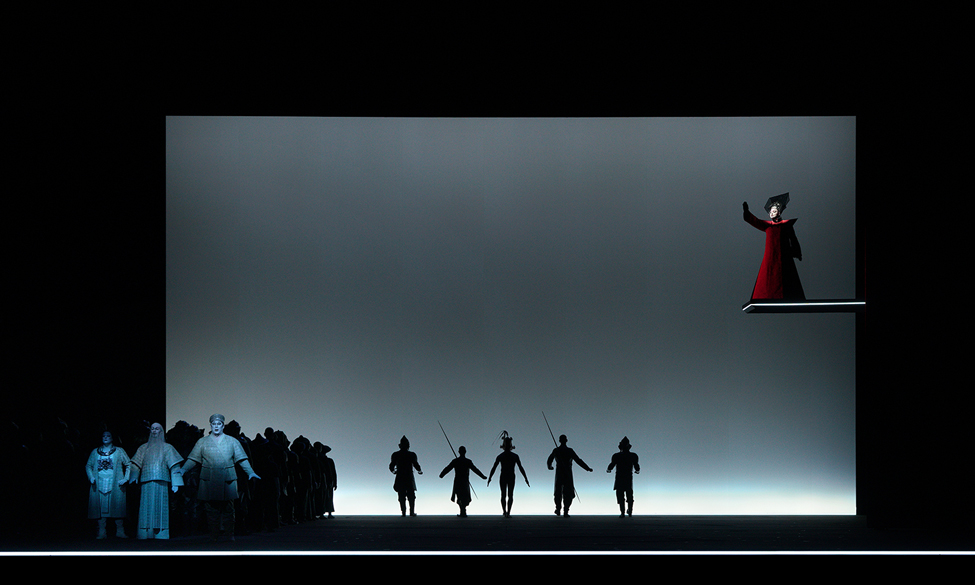-
The Turandot Problem
By Richard LeePosted in 1920 A scene from Turandot (Teatro Real Madrid, 2018)
A scene from Turandot (Teatro Real Madrid, 2018)How do we watch and listen (and hopefully enjoy) Puccini’s Turandot in 2019?
It is a challenge to our sensibilities because the work comes from a vastly different historical moment than our own.
Encountering Turandot today demands that we ask questions about cultural awareness and representation in the art of opera, about the treatment of women in the repertoire, and whether beauty and art deserve a free pass, when, as part of the work, they are including offensive stereotype and cliché.
Puccini’s Turandot, composed in early 1920s Italy, is obviously not about any recognizably real China. It is a fantasy, concocted in the mind of the artist, who has set it in a remote location, in a kind of nowhere place.
Yet saying so is cold comfort when that setting is filled in by the imagination of Europeans engaged in an act of Orientalist projection about a “barbaric” Far East filled with gongs and dragons.
The story of Turandot is itself a patchwork of appropriations, of tellings and retellings: a French version of a Persian epic, which was adapted in 1700s Venice as a commedia dell’arte play, and then transformed into an opera by Puccini, with a fictitious China for its setting.
With a lineage like this, how can we demand cultural authenticity?
Perhaps we need to demand something else first. An honest conversation.
An honest conversation about what this operatic tradition means and how a production in 2019 can push against inherited forms of representation to offer a more inclusive space for today’s viewers. Perhaps through these conversations we can actually make change to upend caricature rather than uphold it. And by doing so, perhaps we can all champion meaningful change.
I was asked to be a consultant for this production. But what does this mean? I don’t believe that my role should be to force choices on any of the artists involved. But rather I extend to them an offer of change, shining a light onto the more problematic aspects of operatic tradition, and hopefully, to invite more diverse voices into the conversation.
An example of this would be the linguistically stereotyped Ping, Pong, and Pang. This production puts forward instead a Jim, Bob, and Bill to serve as the stock characters of commedia origins.
This act of renaming moves Turandot into a different space, one that recognizes the urgency and creative potential of having a conversation that pushes us to greater cultural awareness and inclusivity on our stages.
Is it enough? Of course not, but the end goal is for all of us to become better, and for all of us to grow in our awareness. And for that we need patience, compassion and most of all, we need to continue to keep our honest conversation going.
Richard Lee
Richard is an award winning actor, fight director, sound designer and theatre maker. His incredible body of work has garnered him many Dora Mavor Moore Awards and numerous nominations. Richard is one of the foundering members of fu-GEN Asian Canadian Theatre Company, the longest running professional Asian Canadian theatre company in Canada. An advocate of diversity and inclusion in the arts, Richard is a member of the Canadian Opera Company’s Equity, Diversity, and Inclusivity Committee and a production consultant on our new staging of Turandot.
Join us for Puccini's Turandot, on stage from September 28 to October 27, 2019 at the Four Seasons Centre for the Performing Arts.

YOU MIGHT ALSO LIKE...
Your Guide to Puccini's Turandot
Director's Notes: Turandot by Robert Wilson
Photo credit: Javier del Real.
